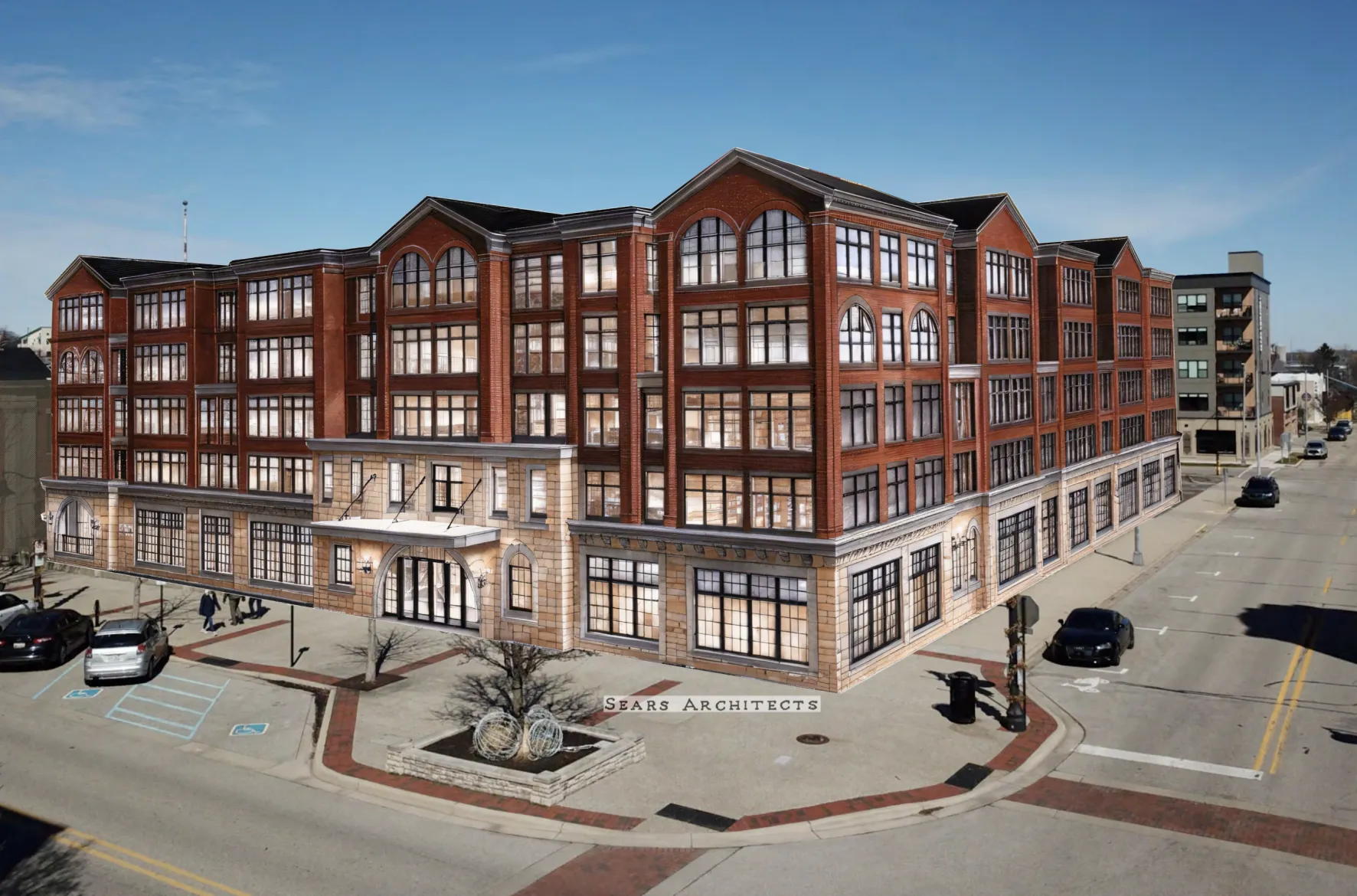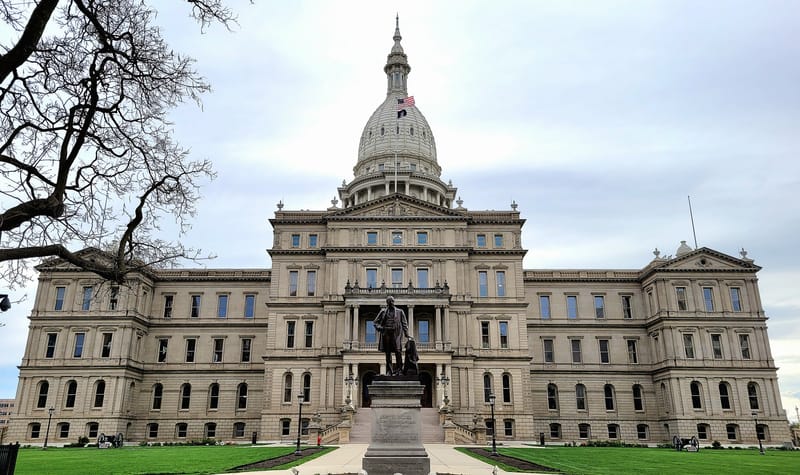Grand Haven council gives final zoning approval to downtown hotel amid parking concerns
The Grand Haven City Council unanimously gave final zoning approval to the planned Marriott hotel downtown at their meeting Monday night, despite unresolved issues with on-street parking.

By Carter Frye
The Grand Haven Tribune
GRAND HAVEN — The Grand Haven City Council unanimously gave final zoning approval to the planned Marriott hotel downtown at their meeting Monday night, despite unresolved issues with on-street parking.
Developers 6PM Hospitality and BDR Inc. sought to rezone the property at 233 Washington Ave. from the Central Business District to Planned Development. Following preliminary approval at a council meeting two weeks ago, a second reading of the zoning amendment was required by the City Charter.
The five-story Residence Inn can now move forward with a final development plan as discussions with the Planning Commission are set to continue. However, City Council made a couple of parking changes to the zoning amendment’s conditions list before approving it.
Read More: Downtown Grand Haven hotel project inches closer to reality
With preliminary plans calling for an 89-space parking lot, developers are still 39 spots short of what is required by Marriott for the 128-room hotel. According to 6PM Hospitality’s Peter Beukema, the extra spots would only be needed during peak tourism times, or around 10 percent of the year.
While it was initially suggested that those spots come from public, on-street parking, Mayor Bob Monetza explained to developers that it would require the city to jump through some hoops that could have wide-ranging effects.
“We would have to change the Code of Ordinances to allow overnight parking on Third Street and Washington (Avenue), and we would have to license those (to the hotel). Otherwise, they would be useless to you because they’d be full all the time with other people parking there,” Monetza said.
Other solutions discussed included overnight street parking decals for hotel guests, adding angled spaces on Third Street, and continuing to search for nearby property owners to partner with.
In order to keep the project moving and avoid going back to square one in the future, the council agreed to slightly change a condition within section four of the zoning ordinance amendment, which previously read as follows:
“The project will provide 89 on-site parking spaces. The remaining required 39 parking spaces will be finalized through a recorded shared parking agreement or other parking exemptions prior to final development plan approval. The requirement for utilizing off-street public parking spaces shall be extended to a walking distance of within 900 feet of a hotel entrance. No on-street parking spaces shall be counted towards the required parking amount.”
Support Our Work
Ottawa News Network is a nonprofit news service dedicated to providing the residents of Ottawa County with trustworthy, community-driven news. ONN treats journalism as a public good — something that enriches lives and empowers Ottawa County’s 300,000-plus residents to stay engaged, make informed decisions, and strengthen local democracy. Please consider giving today.
The council agreed to strike the word “public” and remove the last sentence entirely from the above condition. The move gave approval to the zoning change while currently disallowing the Planning Commission from counting on-street spaces as part of the final development plan.
Monetza said that the last sentence “basically doesn’t mean anything at this point,” and argued that including it would only slow down the process in the future.
Beukema told the council that they are dedicated to finding a solution to the parking issue.
“We’re committed to a successful outcome for everybody,” he said. “We’d love to be flexible on it, and at the end of the day, we’re here to be a good neighbor and a good citizen.”




